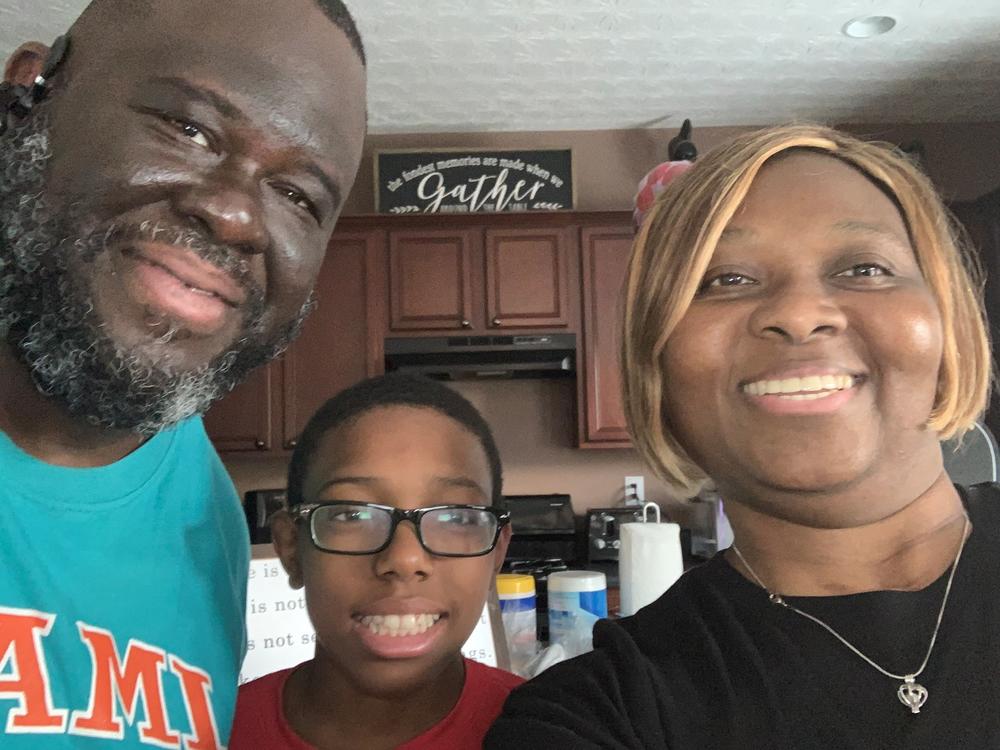
Caption
Dwayne Tremble, Javontae Wright-Tremble and Mae Wright-Tremble smile for a photo. Dwayne and Mae adopted Javontae, 13, from foster care in 2020. New adoption laws passed in 2021 aim to make adoption easier in Georgia — including tax credits for families and college breaks for foster kids.
Credit: Contributed photo


